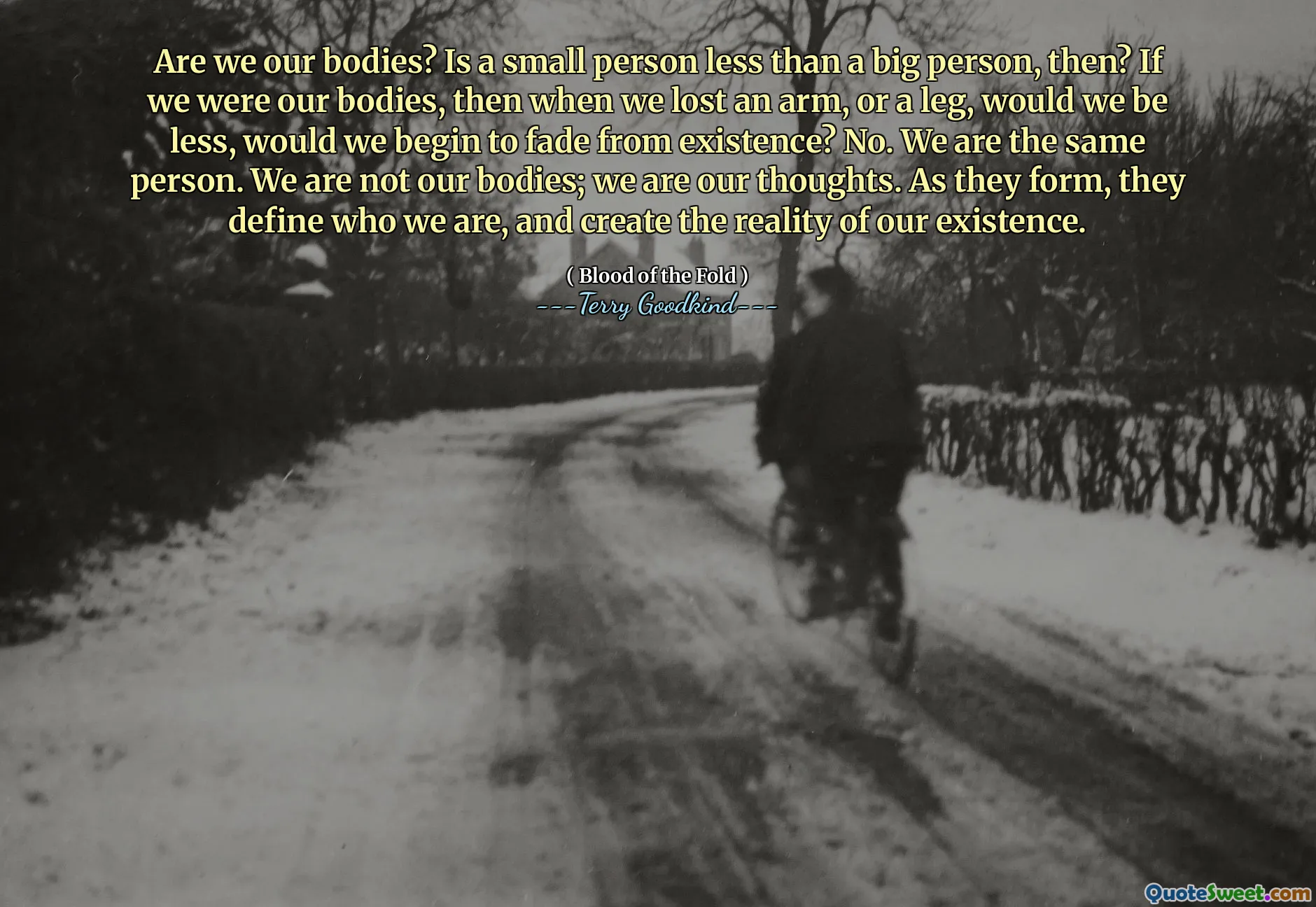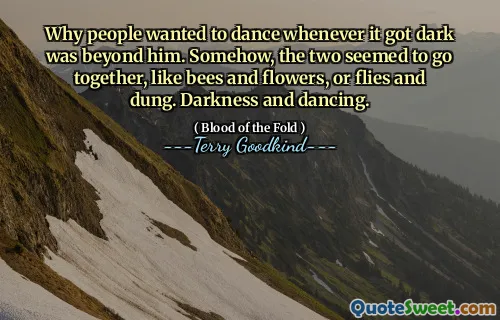
Are we our bodies? Is a small person less than a big person, then? If we were our bodies, then when we lost an arm, or a leg, would we be less, would we begin to fade from existence? No. We are the same person. We are not our bodies; we are our thoughts. As they form, they define who we are, and create the reality of our existence.
**This quote invites a profound exploration of identity and what truly constitutes our sense of self. At first glance, it raises questions about physicality—the size, shape, and bodily integrity of a person—and challenges the idea that our physical form defines our worth or identity. The comparison between a small person and a big person emphasizes that physical differences are superficial when it comes to the essence of who we are. Even losing a limb, the speaker suggests, does not diminish our core identity because our being transcends our physical form. Instead, the true essence is rooted in our thoughts, beliefs, memories, and the internal narratives that shape our understanding of self. This perspective aligns with philosophies that distinguish the mind or consciousness from the physical body, proposing that our thoughts and perceptions are the core of our existence. By emphasizing that we are our thoughts, the quote underscores the importance of mental and emotional self-awareness in defining our identity. It encourages us to look beyond superficial appearances and consider the intangible aspects that constitute our true selves. Recognizing that our thoughts create our reality empowers us to focus on nurturing positive mental states and beliefs, which in turn shape our experiences and perceptions of the world. This insight offers comfort and perspective, especially in moments of physical pain, loss, or change—reminding us that our identity remains intact, rooted in the consciousness that shapes our reality. Ultimately, this message elevates the importance of inner life over external appearances, fostering a deeper appreciation for the complexity of human identity and consciousness.







